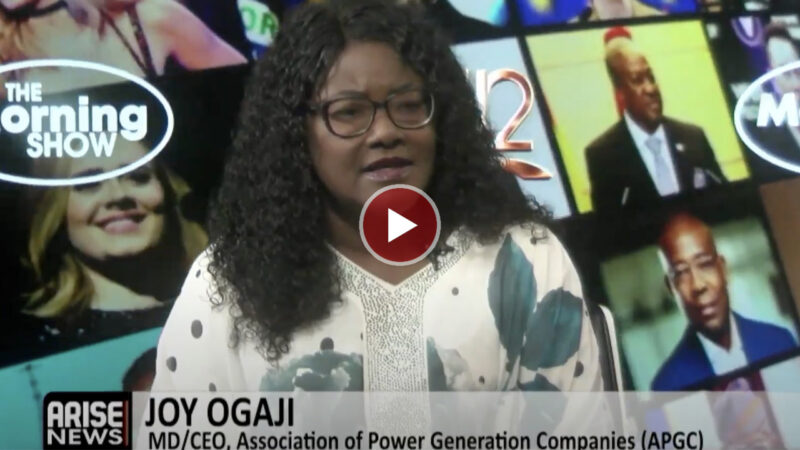
MD/CEO Association of Power Generation Companies (APGC), Dr Joy Ohaji asserted that Nigeria’s push for a decentralised electricity market is hanging by a thread as debt in the power sector balloons and grid instability threatens nationwide blackouts.
Speaking in an interview with ARISE NEWS on Wednesday regarding the state of the industry, Ohaji warned that the financial and technical challenges confronting power generation companies (GenCos) are fast spiralling beyond control.
“As of August, our current receivable in debt has grown to ₦5.6 trillion, with a monthly shortfall of ₦200 billion. It’s actually a threat an existential threat on the Nigerian economy, considering the role of power in economic development.”
Ohaji expressed concern that President Bola Tinubu’s promise to resolve the liquidity shortfall by issuing a bond was being delayed by bureaucratic hurdles. “We received a letter on Monday saying the SA Energy has constituted an inter-ministerial committee to look into the debts,” she said. “If you don’t want anything to work, just put it in a committee, So we are having that at the back of our mind.”
Beyond debts, the grid’s fragility poses another looming risk. Regulators have ordered GENCOs to install “free governor mode” to stabilise the grid by December. “By 31st of December, if we are not complied, then we may be disconnected from the grid, And as you know, he that is already on the ground does not fear fall. So we’re waiting for that date.”
“For a power plant with 1,320 megawatts capacity, they have written to their OEMs and they gave them a quote of $800,000 to just set up free governor mode,” she explained. “In the midst of ₦5.6 trillion debt and already accumulating, we do not have money to carry out that.”
Offering solutions, Ohaji urged Nigeria to adopt Ghana’s “cash waterfall” model, where GENCOs are prioritised for payment, and called for a dedicated gas allocation through joint ventures with oil companies. “In Ghana, there’s a waterfall arrangement which is transparent. The generation companies were prioritised. They should be paid first. Because if we don’t produce, how can you distribute or transmit? But in Nigeria, we operate it in the reverse version.
“Every ₦100 of a GENCO invoice, 70 goes to gas. If government handles gas directly, tariffs will reduce.”
She also stressed the need for political will and competent leadership. “The number one solution we need is political will with a renewed focus on the power sector,” she said.
“We want our political and experienced appointments to be with experienced persons who have the requisite knowledge to hit the ground running.”
She called for a stress test across generation, transmission and distribution to establish a realistic picture of capacity. “Generation says I have 14,000 installed, transmission says I can transmit 8,000. We need to fix a date where the tripod can say, oh yeah, on your mask, get set, go. Generation generate, transmit, transmit. Then let us at each time see how much this tripod can take, not just verbal, political pronouncement.”
Ohaji also emphasised closing the gap between installed and available capacity. “Today, we have an installed capacity of 14,000 megawatts. But the figures show about 4,500 is what’s actually generated. Can this grid carry it? We are saying we are ready to give you 8,000, but as you generate, it must be consumed.”
She reminded policymakers of the limits of industry goodwill. “Nigerian generation companies are patriotic investors. But patriotism cannot continue to generate power. If we can’t get gas, and if we have been disconnected from the grid, clearly we cannot generate.”
Erizia Rubyjeana
Follow us on:







